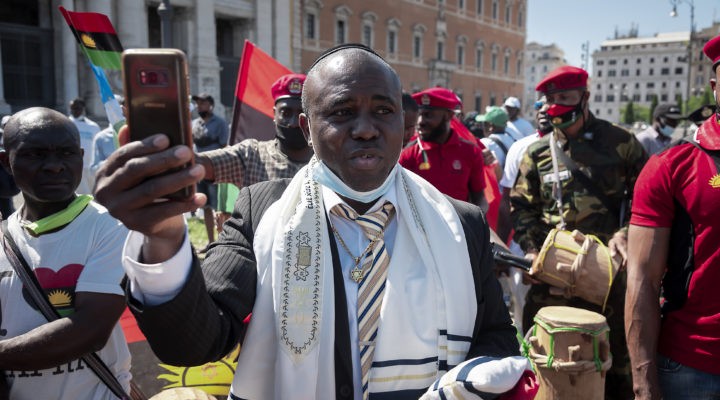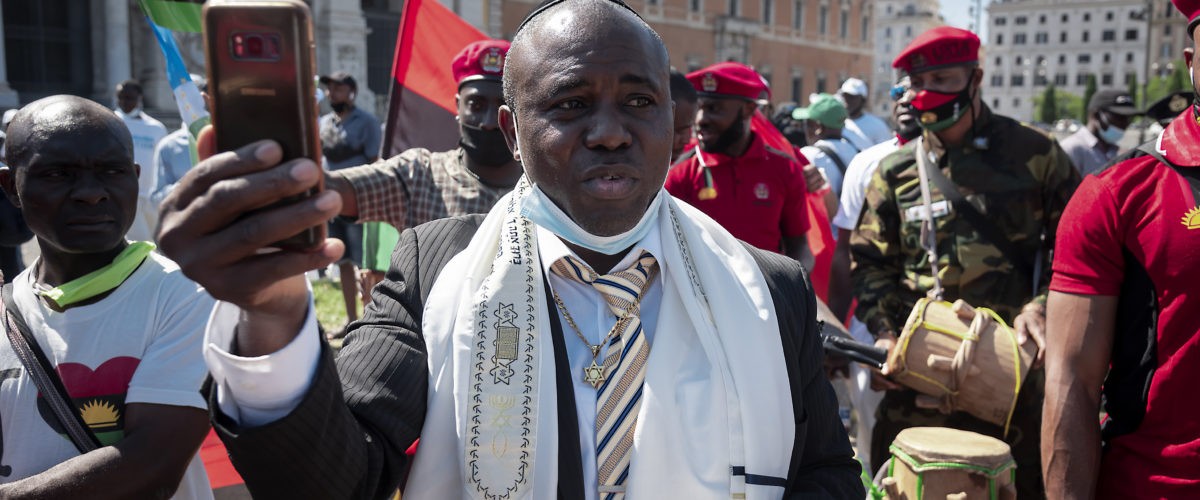In Nigeria, Africa’s most populous country, few topics elicit as much discussion or controversy as politics or religion and the accompanying effects on the people, for good or bad.
It is not surprising then, that the recent delisting of Nigeria as a Country of Particular Concern for religious violence by the U.S. Department of State follows a familiar pattern.
On Nov. 17, the State Department removed Nigeria from the list against the recommendation of the U.S. Commission on International Religious Freedom, the body charged with monitoring religious freedom around the world. The State Department’s decision displeased USCIRF, which considers it “unexplainable” that its recommendation was ignored.
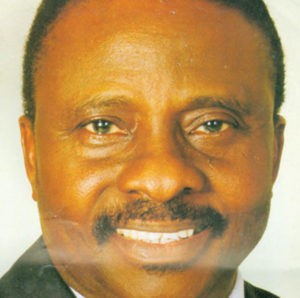
Samson Supo Ayokunle
Like USCIRF, the Christian Association of Nigeria, also finds it hard to come to terms with the decision it believes does not reflect the reality in Nigeria. In reviewing the State Department’s decision — which was announced a day before Secretary of State Antony Blinken embarked on a three-nation tour of Africa — CAN President Samson Ayokunle said his organization was not invited to present its data to the government agency and wonders what has changed between 2020, when Nigeria was included in the CPC list, and now.
“Christians had faced and are still facing persecution from (Islamic State West Africa Province) and the Boko Haram Islamic group till today as before,” he said. “These are the people who said their agenda was to wipe away Christianity from Nigeria and to plant Islam as the only religion from the north down to the Atlantic Ocean in the south. That agenda with the killing of Christians has not stopped till today, and Nigerians are living witnesses.”
Ayokunle added: “The bandits have joined other militant Islamic groups to be ferociously attacking churches, killing worshipers and kidnapping for ransom. The herdsmen are equally doing their havoc. We have lost many people and places of worship to their assault, especially in the north central and the northeast part of the country.”
He further stated that not only are Nigerian Christians prized victims of Islamic terrorist groups, but that Nigerian government policies favor Muslims.
“The bandits have joined other militant Islamic groups to be ferociously attacking churches, killing worshipers and kidnapping for ransom.”
“We have been shouting at the top of our voice, almost in vain, that government policies should be religiously neutral enough so that no religious group would be seen as being favored or discriminated against. Up till today, our government is still funding the membership of Nigeria in all the International Islamic organizations like OIC and its allies without being part of any international Christian organization.”
Given the situation, Ayokunle said it is hard to fathom how the U.S. State Department removed Nigeria from the CPC list and called on the agency to show what has changed.
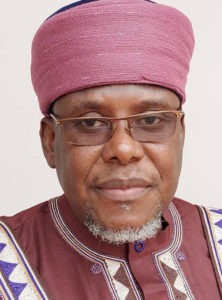
Sheikh Khalid Abubakar Aliyu
To Sheikh Khalid Abubakar Aliyu, secretary general of Jama’atu Nasril Islam, an umbrella body of Nigerian Muslims, what has changed between 2020 and 2021 is the will to do the right thing without pandering to sentiment or propaganda.
He told BNG that at the time Nigeria was included in the list of CPC in 2020, Donald Trump was the president of America and showed a bias for the Christian faith. He pointed out that, in one instance, Trump asked Muhammadu Buhari, Nigerian president, during his visit to the White House, why Christians were being targeted and killed by Muslims in Nigeria. Such conclusions, Aliyu said, were wrong as they were not based on facts. While not denying that Christians have suffered from violence in Nigeria over the years, the greater majority of the victims, he insists, are Muslims.
As far as he is concerned, CAN’s position on the U.S. State Department’s decision is factually incorrect.
“Religious people are supposed to be a beacon of truthfulness and uprightness. This is very important. It is not true that Christians are being targeted. It is a blatant lie, unfounded and untrue. You have to show evidence, facts and figures to prove that you are the main victims of violent conflicts of Boko Haram or whatever. Muslims are the (main) victims. There’s no comparison between Christians and Muslims in terms of who the (real) victims of these monstrous inhumanity of man to man are,” he said.
Aliyu added: “Religious persecution is about who reports, where and how. It’s supposed to be backed by truth, not one-sided. During Barack Obama’s tenure, the U.S. Committee on Religious Freedom allowed the then CAN president, Ayo Oritsejafor, to visit the U.S. and address them. How can you invite one section and you leave one section and you say that it’s fair?” he asked.
For these reasons, Aliyu said the recent decision by the State Department to remove Nigeria from the CPC list “deserves to be commended.”
Back in America, critics of the Trump administration — and critics of the earlier formation of the U.S. Commission on International Religious Freedom — have repeatedly charged that the religious freedom watchdog group is tilted toward the protection of Christians more than people of other faiths. This year’s report, however, did highlight several concerns about the mistreatment of non-Christian believers around the globe.
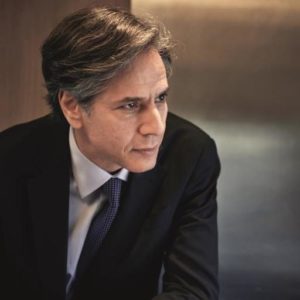
Antony Blinken
In remarks made by Secretary Blinken during his visit to the West Africa country, he said Nigeria has what it takes to be a united, strong and prosperous country.
“The ‘Giant of Africa’ is an apt nickname for Nigeria, because this country looms large,” he said during a stop in Abuja. “Your strengths are undeniable — a dynamic democracy, a robust economy, and a very powerful civil society. … Then there’s Nigeria’s cultural influence.”
While noting that the challenges the country of about 200 million people faces are huge — “including the disruption and insecurity caused by terrorism and armed groups” — Blinken said he believes the U.S. can partner with Nigeria for greater success.
“What happens here in Nigeria is felt around the world. And that — in a nutshell — is why I’ve come to Abuja. The United States knows that, on most of the urgent challenges and opportunities we face, Africa will make the difference. We can’t achieve our goals around the world — whether that’s ending the COVID-19 pandemic, building a strong and inclusive global economy, combating the climate crisis, or revitalizing democracy and defending human rights — without the leadership of African governments, institutions and citizens,” he said.
Anthony Akaeze is a Nigerian-born freelance journalist who currently lives in Houston. He covers Africa for BNG.
Related articles:
Boko Haram is still plaguing Nigeria claiming to do God’s work

